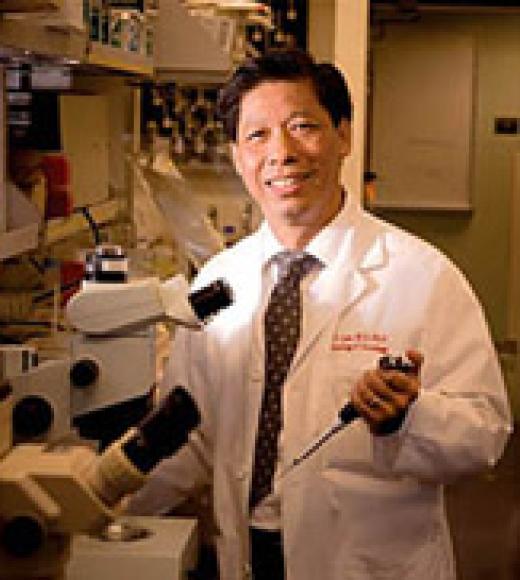
Position Title
Professor
- Biochemistry and Molecular Medicine
Dr. Lam is an expert in combinatorial chemistry, chemical biology, drug development, molecular imaging, nanotheranostics and medical oncology. His laboratory is engaged in the development and application of combinatorial library methods for basic research and drug discovery. In addition to cancer drug development and drug delivery, he is also interested in exosomes, membrane active peptides, signal transduction, antibiotics development, molecular immunology, chemical microarray, and proteomics. Dr. Lam is both a board-certified medical oncologist and a laboratory investigator. He is distinguished for revolutionizing cancer diagnosis and treatment and is acclaimed for his pioneering role in the field of combinatorial chemistry and developing the novel one-bead-one-compound technology, which rapidly screens millions of chemicals at one time to identify those that bind to diseased cells. The tool is advancing the early detection and precise delivery of treatments for brain, breast, prostate, pancreatic, lymphoma and other cancers. In addition, it is advancing the discovery of imaging agents that produce highly detailed molecular profiles of diseases for improved diagnosis and tracking medication effectiveness. His development and applications of combinatorial chemistry and other chemical methods look to solve many biomedical problems. Dr. Lam invented the “one-bead-one-compound” (OBOC) combinatorial library method, filed the patents (the basic patents on the OBOC technology was issued in 1996, 1997, and 1999 by the US patent office), and published the technique in Nature in 1991. The OBOC combinatorial library approach is unique and truly an ultra-high throughput method, as thousands to millions of chemical compounds (peptides, peptidomimetics, small molecules, nucleic acids, and macrocyclic natural product like molecules) can be efficiently synthesized and screened in parallel in a relatively short time.
In addition to expanding the use of one-bead-one-compound technology, Dr. Lam's research also includes developing a blood test for ovarian-cancer detection, utilizing nanoparticle carriers for drug delivery and synthesizing cancer-fighting molecules with less-toxic side effects. He is currently collaborating with faculty from the Veterinarian School of Medicine on translating nanotherapeutic and nano-imaging agents in canine and feline patients.
